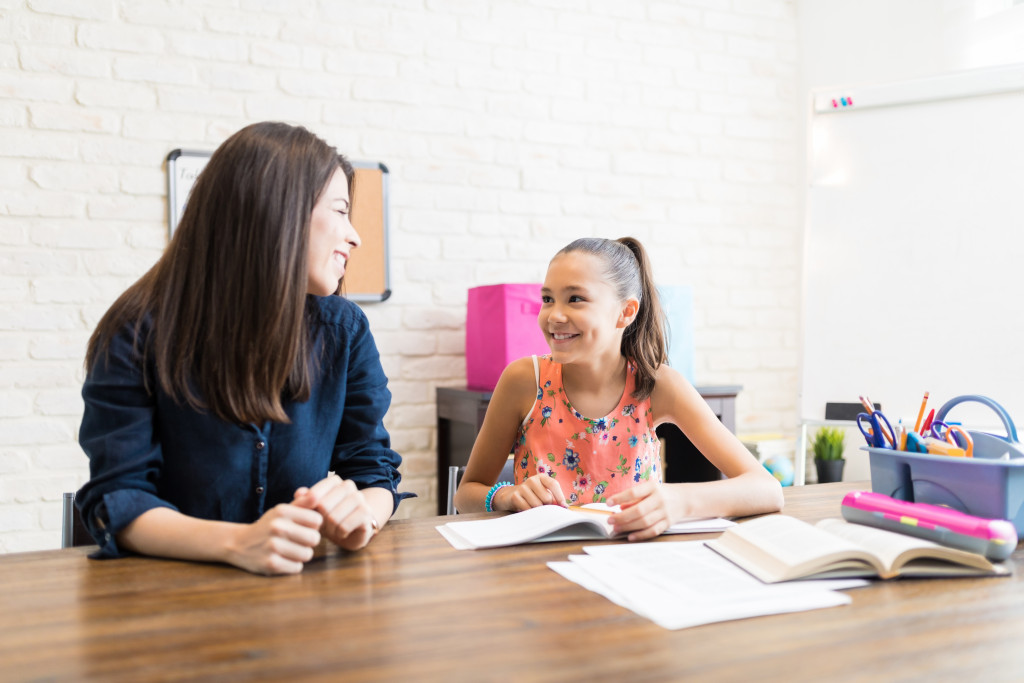If you believe that you can educate your children better than a traditional school, you should consider homeschooling. It will allow you to monitor your kids’ learning more closely and guide them yourself in subjects like religion and values. Plus, homeschooling ensures children’s safety better, considering the newest COVID-19 strain and school shooting crimes.
Of course, we shouldn’t always assume the worst in traditional schools, but we can’t help but worry more than we usually do in these tough times. The pandemic has made us realise how fragile life is, so we’d protect our children with everything we have. And if that will require us to be their teacher, we’d gladly take the challenge.
But transitioning kids to homeschooling or via tuition agency in Singapore poses hurdles for both parents and children. For one thing, the kids will be in their comfort zones, which isn’t the ideal learning environment. And for another, you’d have to recall every subject you’ve learned as a student and impart your knowledge to your kids effectively. Not every parent can pull that off; hence some hire tutors. But if you’d rather handle their education yourself, then here’s everything you need to know about homeschooling:
One-on-one Teaching Allows You to Teach More With Less Time
When you have a place just for you and your kid, you can cover more topics and subjects in a shorter time. Even if you’re teaching more than one child, you can still pack more within an hour or less because your attention is fixed on them, unlike a teacher who has to check on around 30 students at once. In a traditional school, one subject usually takes forty to eighty minutes, and students don’t always absorb enough information.
Homeschooling Can Boost Children’s Self-confidence
As a student, did you also hesitate before raising your hand in class to ask a question? You most likely did or just decided to keep the question to yourself. If you had been homeschooled, you would’ve asked everything you wanted confidently since you weren’t distracted by your classmates.
Likewise, your children will also become more confident when they are learning at home. You’d provide them an interactive environment, which welcomes all questions, thoughts, and opinions.
You Can Customise Their School Year
A traditional school year typically starts in the late summer or early fall, then ends in the late spring or early summer. That’s August to May in the U.S. and January to mid-December in Australia. Spring and Christmas breaks exist in between, and in some places, mid-term breaks. Still, both American and Australian school years are fairly long.
If you homeschool, you may decide to shorten their school year, lengthen it, or make a “hybrid” approach, in which you’d lengthen their break during the year and shorten their summer break. You may also choose a year-round approach, in which you’d give them several short breaks instead of one or two long breaks. It all depends on what works for you and your children.
Your Children May Struggle To See You As Their Teacher

Now, let’s discuss one of the toughest challenges you’ll face in homeschooling. Children in traditional schools separate their parents and their teachers, meaning they couldn’t regard a parent like a teacher, and vice-versa. Indeed, imagine regarding your parents like your boss. It’ll feel strange unless you were raised to inherit the family business or the like.
Even if you taught life skills to your kids, that’s way different from teaching academics. Your kids may struggle to rely on you for that type of education. In fact, you may also struggle to regard your children as a student, especially when you start grading them.
Your kids can love the idea of homeschooling, but it doesn’t mean that they won’t adjust to it easily. So before starting to homeschool them, act as their tutor now so that you’d give them time to get used to you as their full-time teacher.
Your Home May Not Provide the Ideal Learning Environment
If you work from home and find your space uninspiring, your kids can feel the same way about their new learning environment. Aside from the distractions, they may also face issues with comfort. In a traditional classroom, they have their own desk and chair, sometimes their own locker. If you sit them down at your living room’s coffee table or your dining table, then no doubt, your kid will feel uncomfortable.
Hence, invest in proper work furniture, such as a study desk and a high-quality ergonomic office chair. Include a whiteboard if you’re not using screens. Your child will associate the right equipment with school, getting them switched to learning mode.
Overall, homeschooling isn’t an easy journey at all, but it’s definitely worth it if your child learns more from it than from their traditional school. The challenges will get easier over time, so enjoy the transition phase as much you can, and put your children’s feelings on top of your own.

